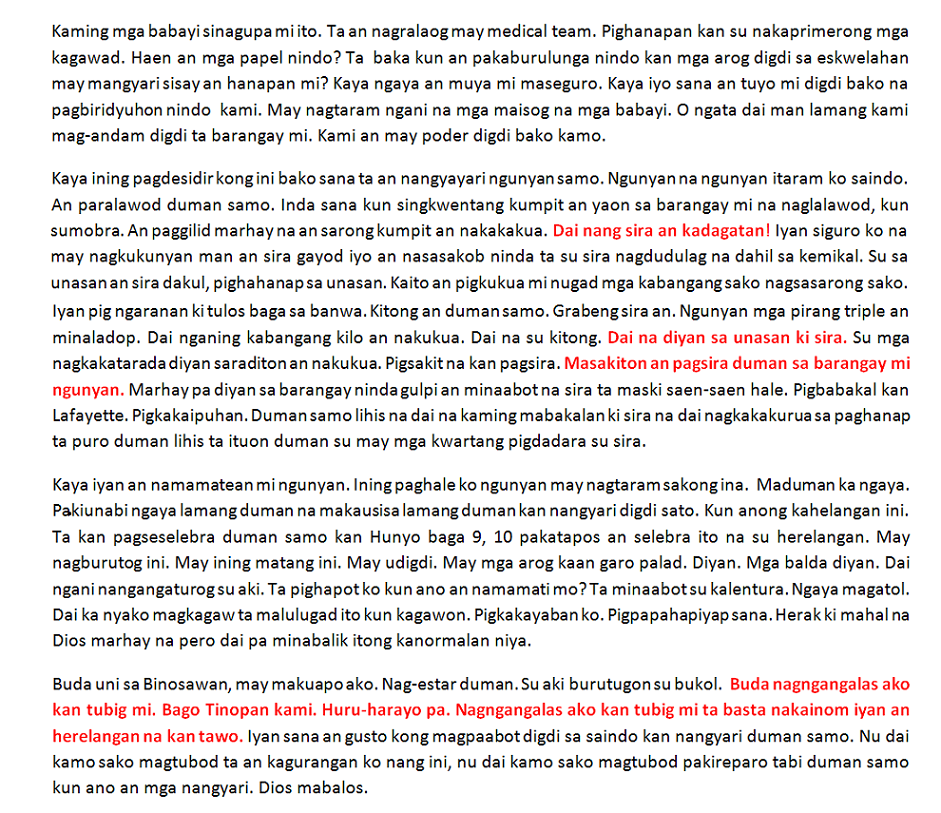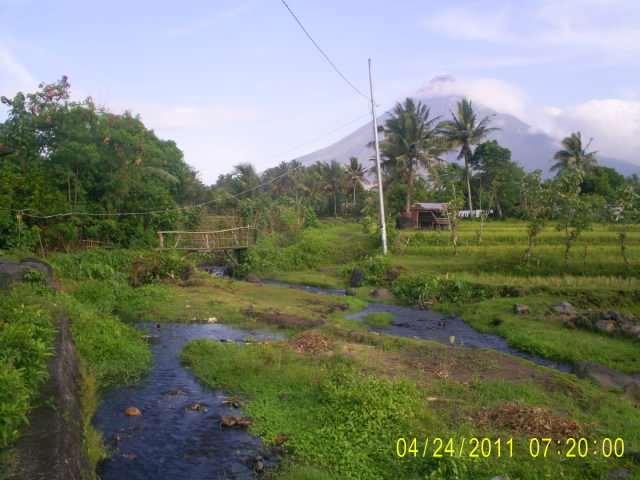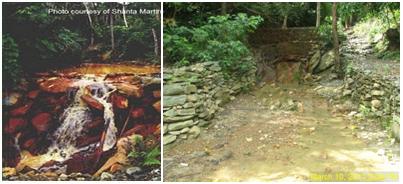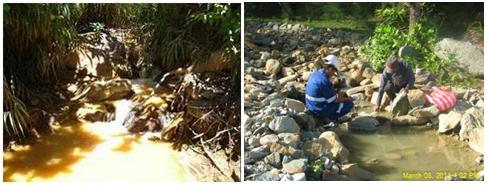Perhaps, the answer to this title's irony lies in Cunanan's article itself. And it's not in abolishing the opposition of bishops and NGOs against mining operations.
Perhaps, she may wish to research just how much government share in mining income does Chile, Australia and Canada get.
Perhaps she may ask some more, if we are the 5th highly mineralized country in the world, then why is our government settling for so much less in terms of just taxation and environmental protection.
First posted 00:23:13 (Mla time) June 03, 2008
Belinda Olivares-Cunanan
Philippine Daily Inquirer
There’s an alarming development I’ve been noticing on the national scene: the active opposition of some bishops to the development of mining sites in various parts of the country. What’s disturbing is that these bishops are not particularly activist, and it could be that it’s a question of the need for government and the private sector to earnestly dialogue with them on the issues involved in large-scale mining operations here.
After the Supreme Court in 2004 reversed its earlier ruling against the entry of large-scale foreign capital here, mining activities should have gone full steam ahead and brought economic development to various poor regions in the country. But this hasn’t happened, and instead there’s gridlock in many places. So much is at stake in these efforts to develop our mining industry, so that if government has to create a special commission to engage in such dialogue, it should do so.
For instance, Bayombong Bishop Ramon Villena has come out openly against large-scale mining projects in the provinces of Nueva Vizcaya and Quirino, such as those of a big Australian firm, reinforcing the obstinacy of local politicians there. Villena’s stand is significant, as he was appointed chair of the Regional Development Council in that area for two years.
In Mindoro Oriental, Bishop Warlito Cajandig has declared his opposition to another mining firm there. In Bacolod City , Bishop Vicente Navarra has opposed a project that PNOC Energy Development Corp. expects to generate more geothermal power to augment the critical energy needs in the Western Visayas , but it’s not difficult to see where he would lean in mining projects.
What’s sad is that an estimated 26 million out of nearly 90 million Filipinos today live in poverty, with an annual per capita poverty threshold of nearly P15,000. But the irony is that the Philippines is the fifth most mineralized country in the world, with established reserves of 15 known metallic and 29 non-metallic minerals and an untapped mineral wealth estimated at about $840 billion. We have nine million hectares of mineralized land, of which only 420,000 hectares are being utilized today.
The bishops have some valid concerns about the environment, and there’s no question that some sectors were traumatized by the record of a few unscrupulous mining firms in the Ferdinand Marcos era. But the bishops also have to consider how many countries have successfully balanced serious environmental concerns with the urgent need to transform their economies, such as Chile , Australia and Canada .
Government has to reach out to the various opposing sectors and tackle their objections; otherwise our people would be the biggest loser.
































































































































No comments:
Post a Comment